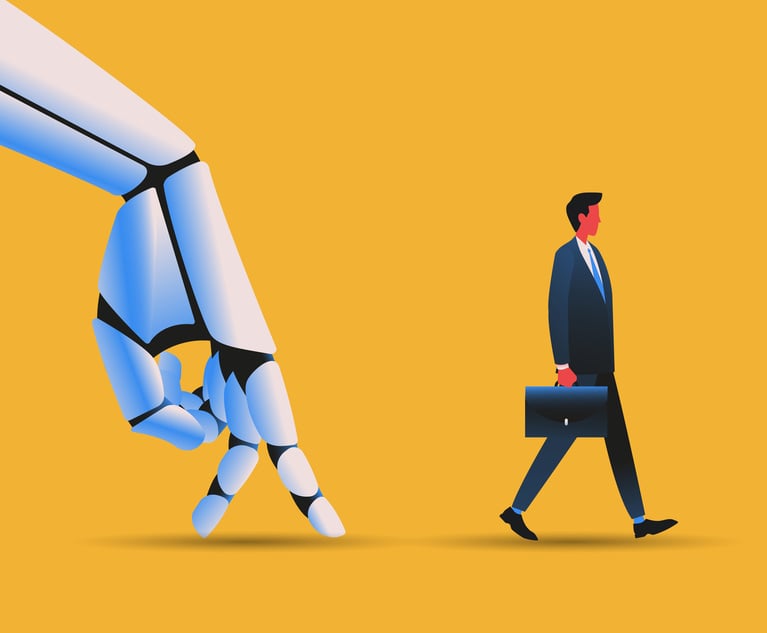Jobs
How Many Legal Jobs Will be Affected by AI? Law Firms Can’t Agree

While most law firms are taking steps to ensure they are well positioned to capitalise on the rapid advancements in artificial intelligence, few agree on how much impact it is likely to have.
A survey of a selection of the U.K.’s top 30 law firms by revenue found a wide range of views when asked what proportion of jobs are likely be alerted by AI in the next five years.
A number of firms, including Fieldfisher, Freshfields, Kennedys, and Macfarlanes, all stated that they believed every single job at their firm would incorporate or be altered by generative AI in the next five years.
Meanwhile, firms such as Bird & Bird believe less than half of their roles internally will be affected, while Addleshaw Goddard, Charles Russell Speechlys and CMS put the figure at between 50 and 75%.
This is affecting the way firms are implementing the technology, with some firms continuing to trial generative AI programmes while others remain more sceptical of adopting the tech firmwide.
Some believe the impact will remain limited to certain areas. Bird & Bird said that it expects AI will generate a major part of first-draft contracts and other legal documents. Charles Russell Speechlys said the least likely roles to be impacted are at partner level. Travers Smith said AI would affect knowledge worker roles across legal and business services.
Meanwhile, Fieldfisher said it believes all roles will be impacted and Addleshaw Goddard said: “All roles will be impacted in some way, whether that’s simple productivity gains or the introduction of LLMs into everyday solutions used in the firm.”
Products
Multiple law firms have incorporated the generative “AI companion” Microsoft Copilot into their operations, including Clifford Chance, CMS, Fieldfisher, and Herbert Smith Freehills.
Simmons & Simmons said that it had been selected for the Microsoft Copilot early access programme, and was now moving towards wider deployment across the firm.
Meanwhile, Harvey AI also continues to be a popular option for firms, with CMS and Macfarlanes both using the generative AI-powered tool. Freshfields is currently trialling both Microsoft Copilot and Harvey.
While optimism for the future of GenAI technology remains high, a number of firms expressed a degree of caution, indicating that firms are beginning to question its uses more deeply.
One top 30 U.K. firm which preferred not to be identified, expressed doubts that the initial hype around generative AI had been merited.
The firm stated: “Our experience is that AI is surrounded by a mix of exaggerated claims and underestimated potential. The hype is often a blend of heady aspirations and sensationalised marketing.”
The firm also called for more practical thinking around AI, and its potential for law firms.
“We’re now at the stage where a bit of AI realism is required: realism in what AI can and can’t do means that we understand its practical limitations and capabilities; and can set appropriate expectations, applying them in a way that complements human skills and enhances decision-making processes.”
Responding to Law.com International’s survey, Clifford Chance stated: “Clearly there are business productivity solutions that would deliver efficiencies to any business, but also some incorrect use of generative AI for certain use cases. The frontier is currently very jagged on where it is helpful or not, [so it] must be managed use case by use case.”
However, despite this caution, firms were also clear that GenAI has had enormous benefits to their organisations.
Addleshaw Goddard said: “GenAI is enabling us to leverage technology to do things that were previously not possible”, with the firm saying it believed GenAI would bring opportunities for people to work in law outside of the traditional routes.
Meanwhile, some firms think the impact of GenAI on jobs in the industry is likely to fall largely on the junior end of the spectrum.
CMS, for instance, stated: “In a vacuum this might mean we need fewer [junior] lawyers, but it is also likely that the amount of legal work will increase. Also, given that we will need senior lawyers in the future, we will still need junior lawyers to train up—the industry won’t work with an ‘inverted pyramid'”.
Freshfields echoed the sentiment of ‘more work, more efficiently done’, specifically within the context of disputes work.
The firm predicted: “It will increase efficiency in legal work. However, at the same time we are already witnessing for example a significant increase in cases due to technological advancement in the efficiency and automation of case submission.”









